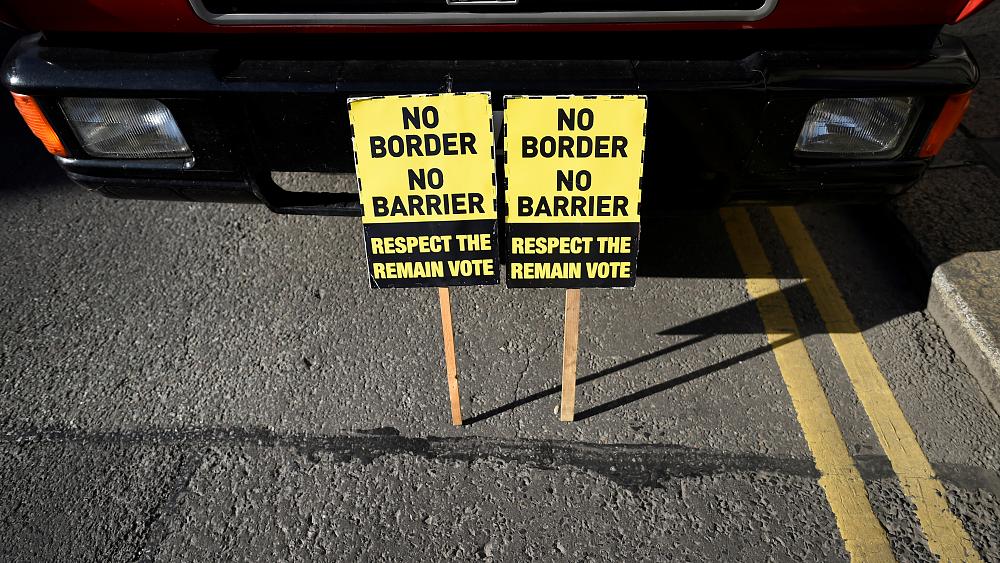
Something quite shocking has happened.
The LibDems, on a roll since the EU elections and with defecting MPs arriving almost weekly, have announced a new, eye-catching policy.
Their manifesto in the next election will include a promise to cancel Brexit. No ifs, no buts.
Arguably this is nothing new – what else could their EU campaign’s “Bollocks to Brexit” have meant?
But it has the merit of clarity. It says “We are the remain party.” Since as many as one in three voters recently thought the LibDems were still in favour of some sort of Brexit, this announcement surely obliterates that doubt.
So if it was both hardly new and somewhat necessary, why has it caused so much fuss?
Even Caroline Lucas has gone to press (or at least twitter) to complain that it is anti-democratic; that “you can’t turn the clock back” and “you can’t ignore the 17m who voted leave”. Lord Adonis has chimed in, “I strongly agree.”
You can’t ignore the 17m who voted leave. And we haven’t; the last three years have been all about leave, all day, every day.
THE POVERTY OF THE MANDATE
Nor, of course can you turn the clock back. But you can, and you should, ask whether the 2016 referendum was fair, legal, and compelling. It was none of those things. And even if it were, the concept of Brexit has changed; it now seems to mean only leaving without a deal, something derided three years ago as patently absurd. And so, too, has the world around us changed; the global picture of Trump, Putin and President Xi jockeying for position now makes the case for membership of a unified Europe so much stronger. The risks of Brexit in any form have been gradually, if only partially, revealed to us. The claims of its benefits have fallen away, such that now there is no longer any serious attempt to suggest economic positives, or even social ones; the offer now is just some nebulous sense of taking back control, even if that control paradoxically weakens us; even if we exert it, as one defiant Brexiter insisted, while we sit in the dark eating home-grown turnips.
BOXED-IN BORIS
Meanwhile, PM Johnson has boxed himself into a Do or Die (Br)exit strategy from which there is, ironically, no escape. He shows no signs of being able to do a deal; nor, at least until Parliament moved to block No Deal, has he shown signs of even wanting one. He promised to leave on 31 October (and owned that date as if he had set it himself) and all his credibility, such as it is, now depends on meeting that promise.
But how? The EU cannot move much without threatening its own existence; there is no time; the reasons for the backstop (now better understood by ordinary folk, especially those who grew up with the Troubles) have not fallen away. There are no “alternative arrangements” worth their salt, and if there were, there’d be no need for — and therefore no issue with — a backstop.
There is no way through this for Mr Johnson, just as there was no way through it for Mrs May. It can’t be done. It is an impossible goal, a circle which cannot be squared. It is a dead parrot. And yet it refuses to shuffle off its mortal coil. You’d feel sorry for Johnson, but he asked for the job, and reinforced the very walls which now close in on him. He shows no care or concern for the millions of lives thrown into chaos by his stance, nor for the constitutional mess he creates daily, nor the palpable threat to us all from the undermining of the rule of law. It’s his bed, but we all have to lie in it.
THE MOVING OF THE DIAL
In this context – the poverty of the Brexit mandate, and the impossibility of delivering it – it is past time for someone to stand up, clearly and unambiguously, for binning Brexit.
But the dial has been strikingly moved in recent months. It used to be a choice between Mrs May’s hard Brexit Withdrawal Agreement to possibly “no Brexit at all”. (And I have it on pretty good authority that, had she not been able to secure her first extension with the EU, she had decided to revoke.)
Now it has become a choice between an illusory harder Brexit deal (yet to be articulated, let alone struck) and “Brexit first, deal later” – which is what no deal really means. These repellent options have become the two ends of the possibility spectrum (the so-called “Overton Window”), and so blinkered has our politics become, that Jo Swinson and her excited supporters announcing a manifesto pledge to jettison Brexit entirely can be characterised as extremism, and undemocratic.
Our continued membership of the EU, which has brought peace and prosperity and freedoms for decades, is now an outlandish, harmful wish. Even offering it as a manifesto pledge, to be followed through only if a party wins a majority, is now judged anti-democratic. That is to say, an elected government, standing on a clear platform of continuity with the last four+ decades, delivering on its promises, could now be deemed anti-democratic. Not in the estimation of some swivel-eyed partisan, but in the estimation of sensible women like Caroline Lucas, and passionate remainers like Lord Adonis.
How we got here beggars belief. Politics has been amazing to watch. But in some ways this is the most shocking development. How easily our frame of reference has been shifted. How effectively the options have been narrowed by the repetition of specious arguments and demented catchphrases, a crude and self-interested press and a largely subservient broadcast media.
IF THIS IS THE POWER OF AN ADVISORY REFERENDUM…
Are the LibDems to be banned even from offering voters continuity with the last four decades, solely on the basis of the 2016 referendum?
If there were to be another referendum, for which Caroline Lucas has campaigned, would it be wrong to include a revoke option on the ballot? What would be the point of it, if it did not offer revoke?
Are we to say that only a referendum can counter a referendum? Not parliament, not MPs, not a new government elected with a majority of seats on a clear manifesto pledge? That would be an extraordinary adjudication. How long would such a situation obtain? If this is the power of an advisory referendum, thank heavens it wasn’t a legally binding one. It would have bound us, and our capacity for self-determination, in perpetuity.
Even if the 2016 referendum had been inclusive, fair, legal, and overwhelmingly decisive, future parliaments cannot surely be locked in by it. Future policy offerings cannot be vetoed by it. Our votes, in general elections as in referendums, still have to count for something; they cannot be invalidated by our previous votes, just because those previous votes were made in a referendum. (More on what might constitute legitimacy here.)
THE REAL SHOCK
You could argue that the LibDems tactic isn’t a good one; that it will lose them votes; that it will split the remain vote; or that it will cause them problems in the future. Fine. There is a valid debate about tactics to be had. You could just not like the policy, and refuse to support it. Fine.
But to contend that it is anti-democratic even to offer revoke to a future electorate is extraordinary. That statesmen and women of distinction and general clear-sightedness are holding such a view is a measure of how effectively our political horizons have been shaped and constrained by the Brexit ultras. This is the real shock. When good women and men turn against not just their own people, but against their own goals, the game is, in large and terrifying part, already lost.



